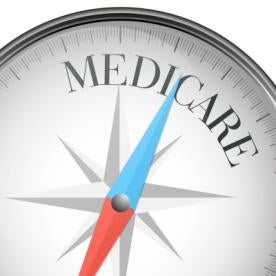On June 27, CMS issued a proposal for the 2017 Medicare home health prospective payment system (HH PPS).
CMS is proposing a $180 million reduction in 2017. This equates to a 1% drop in reimbursements for home health agencies caring for Medicare beneficiaries. This cut is the next in a series of reductions mandated by the Affordable Care Act. In 2015 the cut totaled $60 million, and in 2016 it totaled $260 million. The ACA called for reductions to home health service agencies to counter overspending dating back to 2000.
The proposed decrease reflects other system increases and decreases, such as:
-
$420 million increase for 2.3% home health payment update,
-
$420 million increase for rebasing adjustments to the standardized 60-day episode payment rate, per-visit payment rate, and non-routine medical supplies conversion factor,
-
$160 million decrease for .97% adjustment to account for nominal case-mix growth, and
-
$20 million decrease for the fixed-dollar loss ratio used to determine outlier payments.
By December 2014 estimates, approximately 200 new home health agencies signed up for Medicare every year since 2002. Modern Healthcare suggests this may have been due to the 17.2% difference, on average, between the cost to provide care and the Medicare payments received for home health services. The yearly cuts to home health reimbursement seems to have deterred this growth; an estimated 11,781 home health agencies were signed up with Medicare in 2014, and this number dropped to 11,400 this year.
Changing to cost-per-unit for outlier payments
CMS is proposing changing from a cost-per-visit approach to a cost-per-unit approach for episodes that go beyond the standard range of care. 15 minutes will be considered a unit in this shift. To keep outlier payments in compliance with the Social Security Act, the proposal will also adjust the fixed-dollar loss ratio.
Value-based purchasing pilot to begin 2018
Starting in 2018, participating states will see rates adjusted annually up or down by 3%, depending on how their Medicare home health agencies meet CMS-determined performance metrics. In 2022, the adjustment is increased to 8%. The pilot states are: Arizona, Florida, Iowa, Maryland, Massachusetts, Nebraska, North Carolina, Tennessee, and Washington.
Increased wages for non-medical home health workers
The U.S. Supreme Court recently decided to not hear – and thus not challenge – a new rule from the Department of Labor that requires higher wages for non-medical home care workers, also called companionship workers. Previously, companionship workers were exempt from minimum wage. Under the Department of Labor rule, they must be paid minimum wage and overtime.
Worker groups advocated for the rule, insisting it will help address worker turnover and make the job more attractive. Industry groups countered that higher wages would force them to cut workers’ hours and raise fees to compensate for the increase in wages.
Vanessa Lam is co-author of this article.



 i
i


